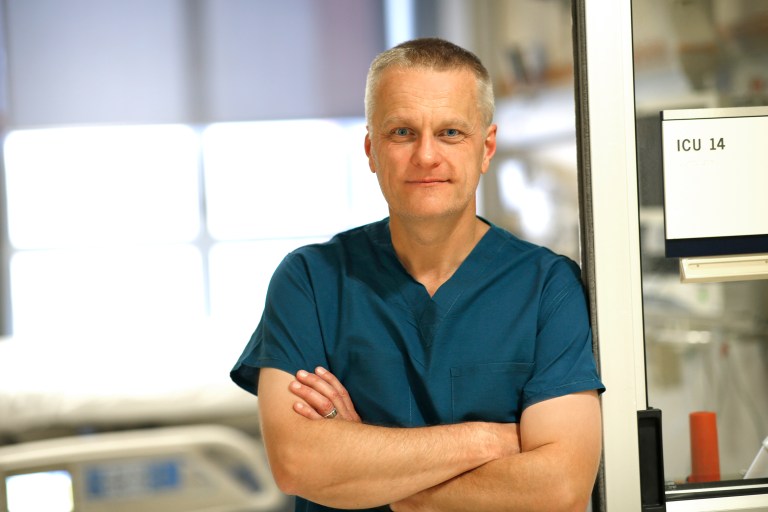144 Hope Is What the Dr. Ordered
The dynamics of blended family life can bring hopelessness, and we lose the ability to see a future where God can make our situation better. But there’s always hope for a brighter tomorrow. In this episode, Ron Deal speaks with Dr. Lee Warren, a neurosurgeon who has experienced personal trauma and loss, and explains the difference between our mind and our brain and how to use our mind to face hard things in a constructive manner. As we transform our thoughts and consider our feelings against the Truth of what God’s Word says, we find hope again for healing, for purpose, for change.
Show Notes
- Send a gift and receive The Smart Stepfamily Marriage
- Learn more about the Summit on Stepfamily Ministry
- Get Dr. Lee's book, HOPE IS THE FIRST DOSE
- Dr. Lee Warren's website and podcast
- Email us for a chance to win a hard copy of Hope Is The First Dose! blended@familylife.com
- Ron's list of Smart Stepfamily therapists.
About the Guest

Dr. Lee Warren
W. Lee Warren, MD, is an award-winning author, brain surgeon, patent-holding inventor, and Iraq War veteran. He is the author of Hope is the First Dose—2024 Outreach Award Winner for Counseling and Relationships Resources— I’ve Seen the End of You—winner of the ECPA Christian Book Award—and No Place to Hide. In addition to his full-time practice as a neurosurgeon, Dr. Warren hosts a podcast exploring the complex interplay between faith and science in unlocking the secrets of the mind, body, and spirit for better living and for making sense of faith in difficult circumstances. Dr. Warren has been featured on such news outlets as CBS Evening News, The 700 Club, and Focus on the Family. He and his wife, Lisa, have four adult children and four grandchildren and live in North Platte, Nebraska. To learn more, please visit www.wleewarrenmd.com.
About the Host

Ron Deal
Ron L. Deal is one of the most widely read and viewed experts on blended families in the country. He is Director of FamilyLife Blended® for FamilyLife®, founder of Smart Stepfamilies™, and the author and Consulting Editor of the Smart Stepfamily Series of books including the bestselling Building Love Together in Blended Families: The 5 Love Languages® and Becoming Stepfamily Smart (with Dr. Gary Chapman), The Smart Stepfamily: 7 Steps to a Healthy Family, and Preparing to Blend. Ron is a licensed marriage and family therapist, popular conference speaker, and host of the FamilyLife Blended podcast. He and his wife, Nan, have three sons and live in Little Rock, Arkansas. Learn more at FamilyLife.com/blended.